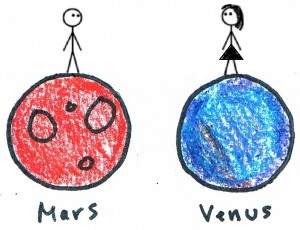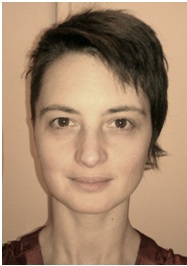In this short clip (filmed in the summer of 2013), I share my experience with the graduate certificate program offered by Emory’s Center for Mind, Brain, and Culture. The Center’s mission is “to foster inquiry, research, and teaching from multiple explanatory perspectives concerning issues and phenomena associated with mind, brain, and culture and their relations.”
Category Archives: Research and Scholarship
Special Theme Issue: Asexuality
Mark Carrigan, Todd Morrison and I co-edited a special issue of the journal Psychology and Sexuality on asexuality. I am happy to announce that the issue has been published!
Please see the announcement from Routledge (note: the editorial and the “virtual discussion” between all of the contributors are free to read online until May 31, 2013).
A member of the asexual community has written excellent summaries of all of the articles.
Thank you to my co-editors, all of the contributors, and our anonymous reviewers.
Doing Neuroscience, Doing Feminism: Interview with Dr. Sari van Anders
Cross-posted with permission from the Neuroethics Blog.
After attending the Neurogenderings Conference in Vienna, where participants debated whether it would be possible to conduct feminist neuroscience research, I decided it would be useful to interview an actual practicing feminist neuroscientist – and I knew just who to talk to. Dr. Sari van Anders is an Assistant Professor in Psychology and Women’s Studies at the University of Michigan. She earned her Ph.D. in Biological & Cognitive Psychology from Simon Fraser University. In her social neuroendocrinology lab at the University of Michigan, she conducts feminist neuroscience research on a variety of topics, with a principle focus on the social modulation of testosterone via sexuality, partnering/pair bonding, and nurturance. She has received grants from the National Institutes of Health (NIH) and the American Institute of Bisexuality and has published articles in Hormones and Behavior, Archives of Sexual Behavior, and Psychoneuroendocrinology, among others.
I asked her to talk about what she sees as feminist about her own behavioral neuroscience research, how she has secured support for her work from other behavioral neuroendocrinologists, and what advice she would give to early career scientists who want to incorporate feminist concerns into their research. Read on for Dr. Van Anders’ thoughtful and thought-provoking answers.
Intrepid Grrrl Reporter: A Dispatch from the NeuroGenderings II Conference
Cross-posted from the Neuroethics Blog.
Two weeks ago, I had the pleasure of attending the NeuroCultures – NeuroGenderings II Conference at the University of Vienna. The conference brought together an international group of scholars to discuss brain research on sex and gender from a feminist perspective. The conference was a treat for me, as I was able to meet a number of leading scholars in the field, including some of the people I have mentioned in previous blogs. I presented a poster on the course, “Feminism, Sexuality, and Neuroethics,” which Cyd Cipolla and I co-taught last spring, and also presented a paper reviewing contemporary neuroscience research on transsexuality.
Although it is difficult to summarize two days’ worth of keynote speeches, panels, and poster presentations, I would say that two main themes emerged within the conference: the first was a critique of neurosexism both within scientific research on sex, gender, and brain and in how this research is communicated to the public through the media. The second was an attempt to explore whether it would be possible to conduct feminist neuroscience research on sex and gender and, if so, what such research would look like.
Continue reading
Response to “Society Does Not Make Gender” by Dr. Larry Young and Brian Alexander
Cross-posted from the Neuroethics Blog
At the beginning of August, Ruth Padawer published a piece in the New York Times magazine about gender non-conforming children and parents. Last week, Dr. Larry Young of Emory University and science writer Brian Alexander (who are publishing a book together, The Chemistry Between Us) published a response to the article, in which they argue, essentially, that gender is biologically hardwired into the brains of fetuses by the organizational effects of hormones. They go on to implicitly endorse what has been called the “brain sex theory” of transgender identity/behavior. According to this theory, hormones organize the sex/gender of the brain much later than they organize the sex/gender of the genitals, allowing for a discordance to develop between the two (Bao 2011).
Admirably, Young and Alexander use the brain sex theory to argue for an acceptance of gender non-conforming children. They write, “so rather than seeing threat, we should embrace all shades of gender, whether snips and snails, sugar and spice, or somewhere in between.” However, there are (at least) four major problems with their argument: they essentialize gender; they uncritically embrace human brain organization theory; they uncritically embrace the double-edged sword of essentialism on behalf of transgender people; and they selectively (mis)use evidence about intersex and transgender people to support an ideological claim about the innateness of gender differences.
Continue reading
Why Do Voles Fall in Love? Interview with Feminist Science Studies Scholar Angela Willey
In May I attended a great conference, the 4th biennial conference of the Association for Feminist Epistemologies, Methodologies, Metaphysics, and Science Studies (FEMMSS). At the conference, I heard a wonderful plenary talk by Dr. Angela Willey and her colleagues. Dr. Willey is one of our own – a recent (2010) graduate of Emory’s doctoral program in Women’s, Gender, and Sexuality Studies. In her work, she examines the cultural assumptions underpinning contemporary neuroscience research on monogamy and the social implications of this research. At the conference, I asked Dr. Willey if she would agree to be interviewed about her work for the Neuroethics Blog, and she graciously agreed. Before sharing what she said, I am just going to give you a little background about Dr. Willey and about the neuroscience research on monogamy that she analyzes.
Update: Qualitative Research with Asexual Individuals
I have completed the qualitative research portion of my dissertation project – between Jan. 2011 and May 2012, I conducted 30 in-depth semi-structured interviews with individuals who identify as asexual. I decided to take this opportunity to post a little bit of information about my methods and about the demographics of my sample.
Methods: I posted multiple requests for interviewees on the AVEN website. My request for interviewees was also circulated to two local AVEN-related listservs. The study was open to people 18 years of age or older who live in the United States and identify as asexual or as a member of an asexual community. Interviews were conducted between January of 2011 and May of 2012 using an interview protocol. All interviewees gave informed consent before the interview. Interviewees also filled out a short demographic questionnaire before the interview. Interviews lasted between 30 minutes and 2.5 hours. On average, the interviews lasted slightly more than 1 hour (median: 1 hr). Interviewees were given a $25 incentive for participating in the research. 25 of the interviews were conducted in-person in the following areas: Atlanta (6); New York (3); Boston (5); Los Angeles (4); San Francisco (1); and Washington, DC (6). The other five interviews were conducted over the phone. The project was approved by the Emory Institutional Review Board (IRB) and by the AVEN Project Team. Funding for the research was provided by the Emory Graduate School, a dissertation grant from the Southeastern Women’s Studies Association (SEWSA) and a student research grant from the Kinsey Institute.
Drug Addiction and Sex Addiction: Are they “real” (brain) diseases?
Cross-posted from The Neuroethics Blog (Emory Center for Ethics)
As Neuroethics Scholars Program Fellows, Cyd Cipolla and I designed an interactive discussion-based undergraduate course “Feminism, Sexuality, and Neuroethics,” which we are currently teaching this semester at Emory. In developing our course, we decided to devote one week to examining neuroscientific research on “sex addiction.” In recent years, neuroscientists have started to use imaging technology to explore the neurobiology of “out of control” sexual behavior (sometimes called sex addiction). In addition, some researchers and mental health professionals have argued that the neurobiology of sex addiction is the same as the neurobiology of drug addiction. However, a number of scholars have critiqued the category of sex addiction, arguing that it is a reflection of our cultural anxieties about high rates of sexual activity (Irvine 1995, Moser 2001). We are fortunate to have an engaged and intellectually diverse group of students and our discussions have proven thought-provoking for us and our students. After our in-class discussions, I was still left wondering whether it is appropriate to view “excessive” sexual interest as an addiction (and, specifically, as a “brain disease” or a “mental illness”) or as a socio-cultural construct dependent on sex-negative cultural values.
Thus, I was very excited by Dr. Steve Hyman’s visit to Emory, as Dr. Hyman is a leader in thinking about the neurobiology of drug addiction and in thinking through the ethical implications of neuroscientific research on drug addiction. During his visit, I took advantage of the opportunity to ask Dr. Hyman to share his thoughts about sex addiction. This blog is a “report back” on both his answer and on my further reflections about whether it is appropriate to use a disease model to understand sex addiction.
Raging Hormones, Promiscuous Men, and Choosy Women: What Does the Research Say?
Cross-posted from The Neuroethics Blog (Emory University Center for Ethics)
 A number of potentially problematic themes run throughout public discussions about sexuality in this country. One such potentially problematic theme revolves around innate sex/gender differences in sexuality. I see stories in the media almost every week about how men and women are almost diametric opposites when it comes to sexuality as a result of evolutionary pressures. In these articles, which are often reporting on scientific studies, the men are invariably sex-hungry and desperate to procreate with any available woman, while the women are invariably choosy and determined to find a “good provider” (for examples, see here, here, and here). I suspect these articles (and the studies they draw from) suffer from confirmation bias, developing elaborate evolutionary rationales to justify what seem like outdated stereotypes.
A number of potentially problematic themes run throughout public discussions about sexuality in this country. One such potentially problematic theme revolves around innate sex/gender differences in sexuality. I see stories in the media almost every week about how men and women are almost diametric opposites when it comes to sexuality as a result of evolutionary pressures. In these articles, which are often reporting on scientific studies, the men are invariably sex-hungry and desperate to procreate with any available woman, while the women are invariably choosy and determined to find a “good provider” (for examples, see here, here, and here). I suspect these articles (and the studies they draw from) suffer from confirmation bias, developing elaborate evolutionary rationales to justify what seem like outdated stereotypes.
Another such theme revolves around the determinative role of hormones in sexual desire and activity. In a fascinating (although now somewhat out-of-date) study, sociologist Amy Schalet interviewed parents in the U.S. and the Netherlands about adolescent sexuality. She found that American parents were much more likely than Dutch parents to view adolescent sexuality as driven by hormones. In addition (perhaps as a result) American parents, unlike Dutch parents, viewed adolescent desire as potentially dangerous, and they were more likely to adopt an attitude of willful ignorance about the sexual activity engaged in by their children.
Illness and Deception? Asexuality on House, MD
Cross-posted with permission by the Kinsey Institute.
A recent episode of the TV series House, M.D. created quite a stir in the asexual blogosphere. The show, for those of you who don’t know, chronicles the adventures of the irascible diagnostician Dr. House as he solves medical mysteries.
[Spoiler alert] The episode of interest (“Better Half” which aired on 1/23/2012) features a husband and wife who both identify as asexual at the start of the show. The wife consults House’s friend and colleague, Wilson, for a minor medical complaint. Upon learning about the couple, House sets out to prove that the wife’s asexuality is caused by a medical condition. He lures her husband into the hospital and performs a number of tests on him, eventually discovering that he has a brain tumor which is affecting his libido. When Wilson tells the couple about House’s finding, the wife admits that she had been pretending to be asexual in order to remain with her spouse.




